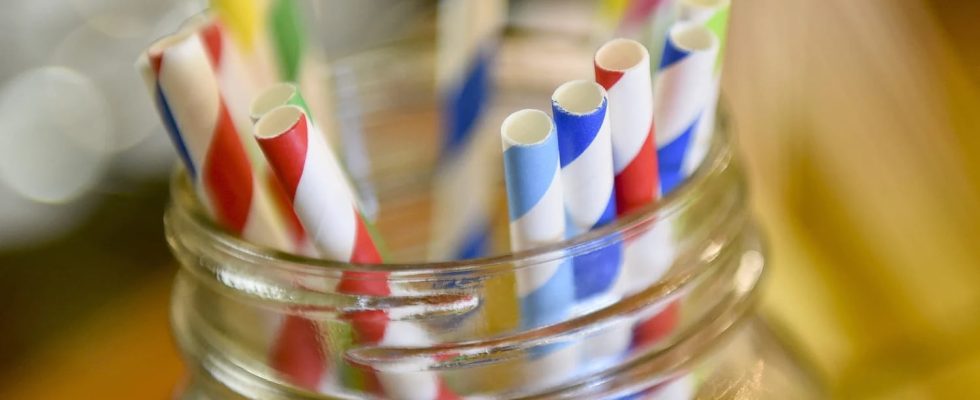The banning of plastic straws in several countries is a victory for many conservationists. But a new Belgian study warns us: so-called “eco-responsible” alternatives, in particular paper straws, could be just as problematic.
Following the banning of single-use plastic products in many countries, new alternatives have emerged. Among them, paper, bamboo or glass straws. However, a first study in Europe to analyze the presence of harmful components in these alternatives. And the results are worrying.
Thimo Groffen, an environmental scientist at the University of Antwerp, and his team bought 39 brands of straws made from five different materials. After two tests, they found “eternal chemical pollutants” in 69% of the products. Paper straws were the most affected, with 90% of them containing these chemicals.
Indeed, the researchers discovered the presence of pollutants in the paper straws of 18 brands out of 20 tested. These substances, called PFAS (poly- and perfluoroalkyl), persist in the environment for thousands of years. They are potentially harmful to humans, fauna and flora.
But why are these chemicals in paper straws? The researchers suggest that PFAS could be used as a waterproof coating. The report doesn’t say whether these chemicals can migrate from straws into drinks, but some PFAS, such as trifluoromethane acid, are highly soluble in water and could potentially do so.
Even if the concentrations of PFAS found are low, these substances can accumulate in the body over a long period of time. We do not yet know their effects but the first studies are worrying.
It is important to note that not all straws are created equal. Stainless steel straws, for example, showed no trace of PFAS. “I would advise consumers to use this type of straw, or to simply avoid using straws,” recommends Dr. Groffen.
The lesson to be learned? Although plastic products have their own environmental issues, replacing one straw with another without a full assessment can have unintended consequences. Paper straws, often touted as a greener solution, aren’t necessarily flawless.
